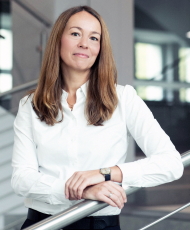Associate Professor (political science) at the Institute of European Studies of the Jagiellonian University. Concentrates primarily on legitimacy and contestation in external relations of the European Union, EU actorness in international relations especially in the EU’s close neighborhood, as well as collective identification changes in the European Union. Has worked and taught in a number of academic institutions worldwide. She participated in several research projects funded by the Polish National Science Centre, the COST programme, and is currently a co-leader of WP on Future of Europe Debate within the Horizon 2020-funded project EU3D. EU Differentiation, Dominance and Democracy. She participates in the Jean Monnet Network ‘The European Union at the Crossroads of Global Order’ (EUCROSS) and Jean Monnet Network: REACTIK - Reative Economy And Culture inTernatIonal link. Also works within the Horizon 2020 Marie Skłodowska-Curie Actions Innovative Training Network: “Delayed Transformational Fatigue in Central and Eastern Europe: Responding to the Rise of Illiberalism/Populism” (FATIGUE) (2018-2012). She has published several peer-reviewed journal articles, book chapters and co-edited volumes. In 2020 she received a Fulbright Senior Award to pursue research at the Centre for European and Mediterranean Studies, New York University, USA.
2022, A. Buzogány, O. Costa & M. Góra, “Contesting the EU’s external democratization agenda: an analytical framework with an application to populist parties”, Cambridge Review of International Affairs, 35:4, 500-522.
2021, K. Biedenkopf, O. Costa & M. Góra, “Introduction: shades of contestation and politicisation of CFSP”, European Security, 30:3, 325- 343.
2021, M. Góra, “It's security stupid! Politicisation of the EU’s relations with its neighbours”, European Security, 30:3, 439-463.
Magdalena Góra, Kontrola demokratyczna i legitymizacja europejskiej polityki zagranicznej na przykładzie polityki rozszerzenia UE i Europejskiej Polityki Sąsiedztwa, Kraków: Wydawnictwo Uniwersytety Jagiellońskiego, 2019.
Magdalena Góra, Natasza Styczyńska, Marcin Zubek (red.), Contestation of EU Enlargement and European Neighbourhood Policy. Actors, Arenas and Arguments, Copenhagen: DJØF Publishing, 2019.
Magdalena Góra, “The European Parliament as an Agenda-setter of EU Policy toward Neighbourhood”, w: Parliamentary Cooperation and Diplomacy in EU external relations, Raube K., Wouters J., Müftüler-Bac M. (red.), Cheltenham: Edward Elgar, 2019, s. 289-305.
Magdalena Góra, Katarzyna Zielińska, “Competing Visions: Discursive Articulations of Polish and European Identity after the Eastern Enlargement of the EU”, East European Politics & Societies 33(2): 331-356, 2019.
Magdalena Góra, Cathrine Holst, Marta Warat (red.), Expertisation and Democracy in Europe, London: Routledge, 2018.
Magdalena Góra, Katarzyna Zielińska, „Defenders of faith? Victims of secularisation? Polish politicians and religion in the European Parliament”, Religion, State, Society, 42(2-3): 211-226, 2014.
Magdalena Góra, Zdzisław Mach, “Between Old Fears and New Challenges. The Polish Debate on Europe”. W: European Stories. Intellectual Debates in Europe in National Contexts, J. Lacroix, K. Nikolaidis (red.), Oxford: Oxford University Press, 2010, s. 221–240.
2018-2023, Jean Monnet Network: REACTIK - cReative Economy And Culture inTernatIonal linK, member of the research team.


